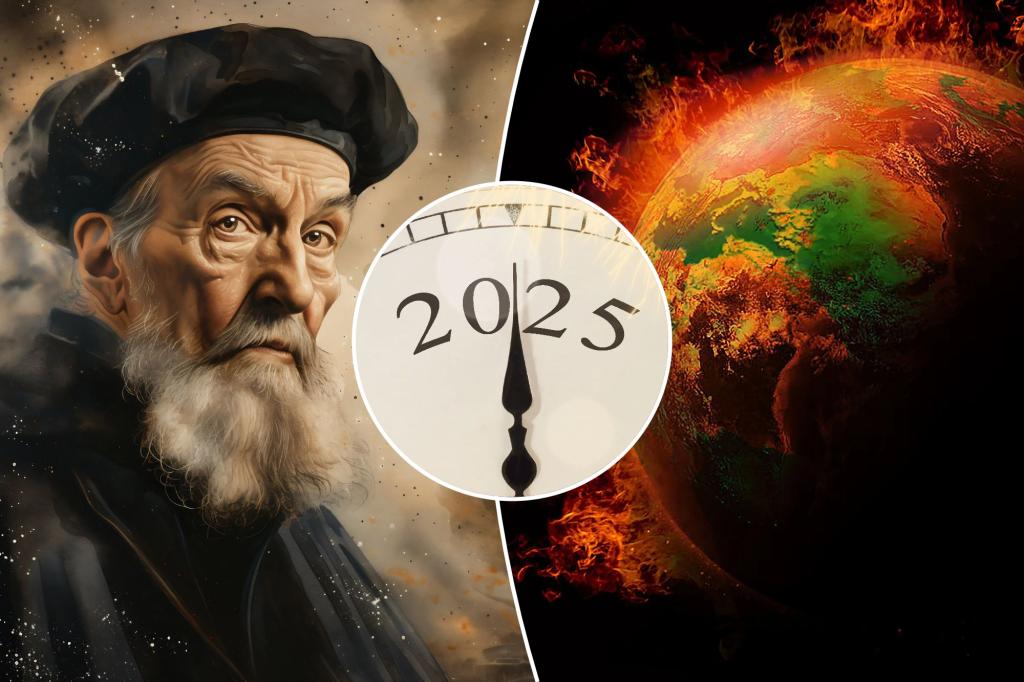Michel de Nostredame, better known as Nostradamus, remains a figure of fascination and speculation centuries after his death. This 16th-century French astrologer and physician penned cryptic quatrains, collected in his book "Les Prophéties," that have been interpreted as predictions of future events. While skeptics dismiss his work as vague and open to manipulation, believers point to apparent hits throughout history, fueling the ongoing debate about his prophetic abilities. Nostradamus’s writings are often associated with doom and gloom, likely influenced by his personal tragedies and the tumultuous times in which he lived. This focus on catastrophe continues to capture the public imagination, especially as people look towards the uncertainties of the future.
Nostradamus’s 2024 predictions offered a mix of potential global upheavals, some of which seemingly aligned with real-world events, while others remained unfulfilled. The devastating earthquake in Japan in early 2024 was cited by some as a fulfillment of his prophecy of a "dry Earth" experiencing "great floods." However, predictions about the abdication of King Charles and a war with China did not materialize. Similarly, the increasingly dire warnings about climate change, while aligning with the general sense of his predictions, did not manifest as a singular apocalyptic event in 2024. The ambiguity of Nostradamus’s prophecies allows for flexible interpretations, making it challenging to definitively assess their accuracy.
Looking ahead to 2025, Nostradamus’s purported prophecies paint a picture of continued conflict, natural disasters, and potential shifts in global power. One interpretation suggests an end to the ongoing conflict in Ukraine, driven by economic exhaustion and potential intervention from France or Turkey, symbolized by “Gallic brass” and the “crescent sign of the Moon.” He also foresees “cruel wars” and a devastating “ancient plague” afflicting England, though the specifics remain shrouded in symbolism. These predictions, whether referring to literal plagues or metaphorical social and political upheavals, contribute to the overall sense of impending crisis that pervades Nostradamus’s work.
Further interpretations of Nostradamus’s prophecies for 2025 include a possible asteroid near-miss or impact, symbolized by a “fireball” rising from the cosmos. This “Harbinger of Fate” could represent a cosmic wake-up call for humanity or, more darkly, a catalyst for widespread destruction. Natural disasters are also predicted for Brazil, with the Amazon rainforest potentially facing flooding and volcanic activity. These predictions resonate with contemporary anxieties about climate change and ecological collapse, lending an unsettling plausibility to Nostradamus’s words.
Perhaps the most dramatic prediction for 2025 is the rise of an “Aquatic Empire” stemming from devastating floods that “reach the skies.” This vision of fallen empires and submerged lands evokes a sense of apocalyptic transformation, with a new power emerging from the depths of the oceans. While seemingly fantastical, this prophecy taps into deep-seated fears about rising sea levels and the potential for catastrophic climate change to reshape the world. The imagery of a submerged world ruled by an aquatic power underscores the vulnerability of human civilization to natural forces.
While Nostradamus’s writings provide fodder for speculation and interpretation, it’s crucial to approach them with a healthy dose of skepticism. The ambiguity of his language allows for a wide range of readings, making it easy to retroactively fit events to his predictions. Furthermore, the focus on catastrophe and upheaval can create a sense of anxiety and fatalism, which is not productive or helpful. While Nostradamus’s predictions may spark curiosity and discussion, they should not be taken as definitive pronouncements about the future. Instead, they should be viewed as a historical artifact reflecting the anxieties and uncertainties of their time, which, in many ways, continue to resonate with us today.

